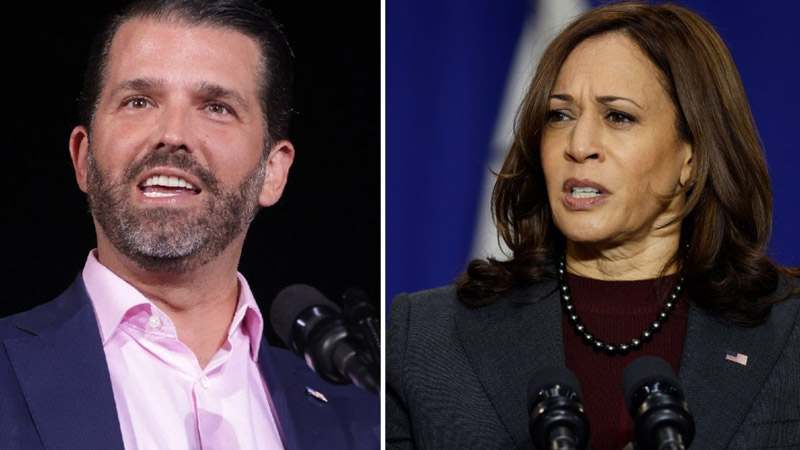Donald Trump Jr. launched a scathing attack on Vice President Kamala Harris, calling her a “phony moron” after his father, former President Donald Trump, backed out of an ABC News debate he had previously agreed to attend.
In a Sunday afternoon post on X, Trump Jr. amplified a message from Republican vice presidential nominee J.D. Vance, which criticized Harris’s lack of media appearances. “It’s been 14 days since Kamala Harris became the presumptive nominee of the Democrat Party and she still hasn’t sat for a single interview with the media,” Vance wrote on Sunday.
Trump Jr. seized on Vance’s message to take a swipe at both Harris and President Joe Biden. “Last time the press allowed a Dem to run a campaign from their basement, we ended up with brain-dead Joe Biden as President,” Trump Jr. commented. “Now they’re trying to stick us with his apprentice: A phony moron who can’t complete a full sentence without someone telling her what to say.”
The criticism did not stop there. Hours earlier, Trump Jr. also addressed what he sees as hypocrisy from Democrats. “Has there ever been a bigger case of projection in history than Kamala Harris calling someone ‘weird?'” he remarked in defense of Vance.
The former president’s son is known for his outspoken and often incendiary comments, and his latest remarks continue his pattern of attacking political opponents with sharp rhetoric. The exchange underscores the heightened tensions and heated rhetoric that have come to characterize the current political climate.
As the 2024 election approaches, such attacks are likely to intensify, with both sides employing aggressive strategies to sway voters. Trump Jr.’s comments reflect a broader effort by the Trump campaign and its allies to discredit Harris and undermine her credibility as she gains prominence within the Democratic Party.
Whether this strategy will resonate with voters or backfire remains to be seen, but it is clear that the battle lines are being drawn, with personal attacks becoming a central feature of the campaign discourse. As the political landscape continues to evolve, the focus will undoubtedly remain on how both parties navigate these contentious dynamics leading up to the election.

